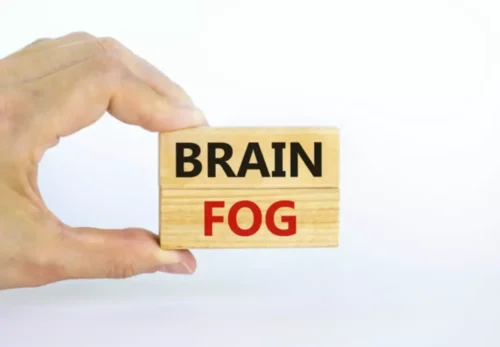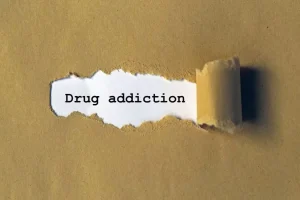
For many depressed patients, drinking may interfere with the successful treatment of their depression. Even among patients whose alcohol use does not rise to the level of an alcohol-use disorder, drinking can have a deleterious effect on depression and depressive symptoms and may dampen the impact of treatment for depression. However, subclinical drinking may not be addressed during the course of psychological or psychiatric treatment for depression.

Stick to moderate drinking
- The long-term consequences of alcohol abuse can be a variety of health problems, including mental health disorders.
- Walking, running, jogging, and even gardening can help reduce the severity of depressive symptoms.
- Methods used in psychotherapy aim to help individuals identify and change harmful behavioral and thought patterns.
This can make you want to drink more to relieve these difficult feelings – which can start a cycle of dependence. Alcohol affects the part of your brain that controls inhibition, so you may feel relaxed, less anxious, and more confident after a drink. The chemical changes in your brain can soon lead to more negative feelings, such as anger, depression or anxiety, regardless of your mood. AUD is a medical condition “characterized by an impaired ability to stop or control alcohol use despite adverse social, occupational or health consequences,” according to the National Institute on Alcohol Abuse and Alcoholism. Binge drinking and heavy alcohol use can increase an individual’s risk of alcohol use disorder. Recent research indicates that physical exercise can be just as effective if not potentially more effective in treating depression than antidepressants in some cases.
Physical health and mental health
This, combined with heightened mood states, can have some unpleasant effects. It also lowers inhibitions, so if you’ve been trying to keep some difficult emotions, like sadness or anger, under wraps, they may come flooding in when you drink. Since alcohol can cloud your brain, it can keep you from seeing helpful solutions to problems. Maybe you tossed and turned, had bizarre dreams, or woke up with your heart racing.

Increases anxiety

People who have problems with alcohol are also more likely to self-harm and commit suicide. Cognitive behavioral therapy can also be used to treat co-occurring AUD and MDD, by improving your emotional regulation, changing your cognitive behaviors, and helping you develop personal coping strategies. In residential treatment, alcohol and depression “an individual stays in a treatment setting, receives intensive therapy, and is physically separated from alcohol in order to recover,” says Kennedy. Kennedy suggests that treatment options can vary depending on the severity of your condition. Or you might attend an intensive inpatient group a few times each week.
- Drinking makes depression worse because you are less likely to feed yourself the nutritious foods your body requires.
- These changes can heighten the physiological “rewards” of alcohol and increase the likelihood that they will continue their pattern of drinking.
- Seeing a mental health professional right away is very important if you also have symptoms of bipolar disorder or another mental health condition.
- This may be because they ‘self-medicate’, meaning they drink to deal with difficult feelings or symptoms.
- Motivational interviewing is a collaborative, nonconfrontational approach to addressing a patient’s ambivalence regarding behavior change.
- I’m going to share a brief example below to help draw a mental picture.
- Substance-induced depression is different from major depressive disorder and, by definition, should improve once a person stops consuming substances (such as alcohol).
- Find out how you can get support if you’re finding things difficult.
- The more you drink, the lower your overall serotonin levels become, making underlying feelings of depression worse.
Alcohol dependence prevents you from learning coping skills that will allow you to deal with negative emotions healthily. Instead of facing your problems, you will just keep on turning to alcohol. You might experience one after a few hours of your last drink as your blood alcohol drops.
Another twin study by Mullin and colleagues1 showed no increased risk for anxiety disorders in identical twins of alcoholics with the exception of conditions (e.g., anxiety) that might have resulted from the alcoholism in the person’s twin. Depression is the most prevalent co-occuring mental health condition with 63% of people with AUD experiencing major depressive disorder. A study from the National Institute on Alcohol Abuse and Alcoholism also found that people with an AUD https://ecosoberhouse.com/ were 2.3 times more likely to have experienced symptoms of depression over the previous year. Due to the high prevalence of concurrent AUD and depression, it is important to know the signs and symptoms of both disorders so treatment can be sought as soon as possible. However, treating most alcoholics’ depressive symptoms might not require the use of antidepressant medications. These medications are not needed to help clear an alcohol-induced mood or depressive disorder.
How Alcohol Makes Your Depression Symptoms Worse
A good first step is to keep a record of how much alcohol you drink and of when you don’t drink throughout the week. Alcohol affects your brain, making you feel relaxed in a small amount of time. As you drink more, you become intoxicated and unsteady, and you might do or say things you normally won’t. Depending on the severity of the disorders, you may need more intense treatment, such as outpatient care, integrated assertive community (ACT) treatment or a residential stay, which may be required to begin or continue your recovery journey.
- Feeling lonely and sad, he started drinking whiskey on weekends to chase away the loneliness.
- Major depression and alcohol use disorder are also co-dependent in women, research suggests.
- Recognizing the symptoms of depression and alcohol use disorder can help ensure that you get the right diagnosis and treatment.
Alcohol use and depression symptoms


